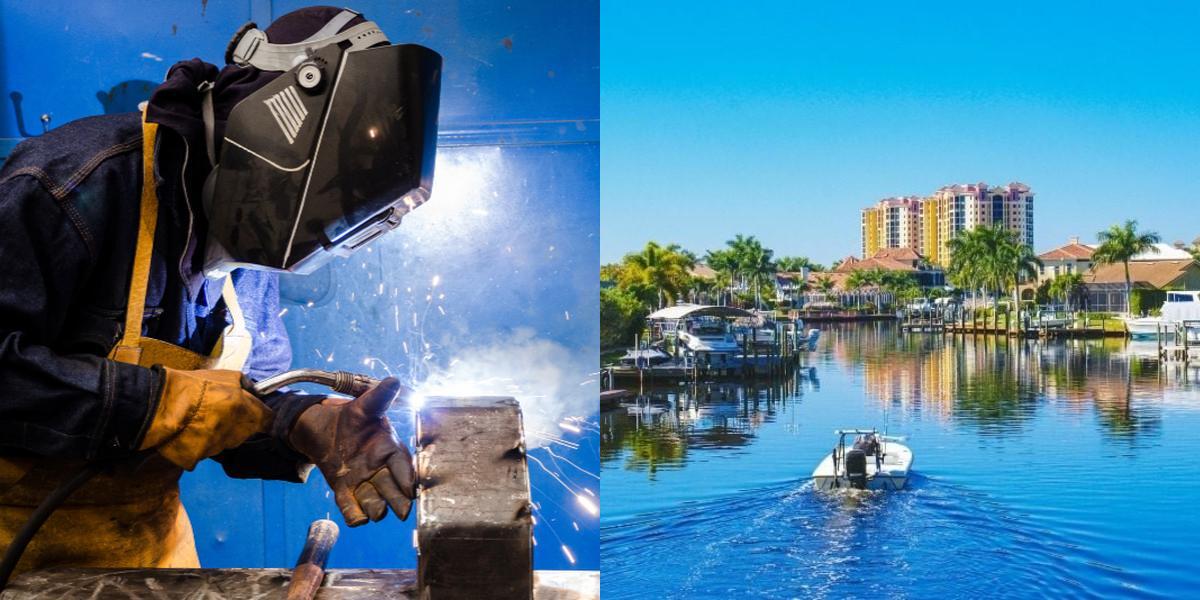How to Become a Welder in Florida

What is a Welder?
A welder is a skilled professional who uses various welding techniques to join metal parts together. They work with different types of metals and tools to create strong and durable bonds. Welders are responsible for reading and interpreting blueprints, selecting the appropriate welding method, and ensuring the quality and integrity of the welds.
How do I get a job as a Welder?
After obtaining your welder certification, the next step is to find a job as a welder. There are several strategies you can use to increase your chances of finding employment in this field.
First, it is important to create a professional resume that highlights your skills and qualifications as a welder. Be sure to include your welder certification, as well as any relevant education or training you have completed. If you have any previous welding experience, be sure to include that as well.
You should also consider creating a portfolio of your work. This can include photographs or samples of your welding projects, as well as any certifications or awards you have received. A portfolio can help to showcase your skills and demonstrate your level of expertise to potential employers.
Networking can also be a valuable tool in finding a job as a welder. Attend industry events and trade shows, and join professional organizations for welders. This can help you to connect with other professionals in the field, as well as potential employers.
In addition to networking, you should also actively search for job openings in your area. Check online job boards, company websites, and local newspapers for job postings. You may also consider reaching out to local welding shops or fabrication companies to inquire about any available positions.
When applying for jobs, be sure to tailor your application materials to each specific job opening. Highlight the skills and qualifications that are most relevant to the position, and be sure to include any certifications or training that may be required.
Finally, be prepared for interviews. Research the company and the position you are applying for, and come prepared with questions to ask the interviewer. Dress professionally and be prepared to discuss your experience and skills in detail.
Career Paths and Opportunities after Becoming a Welder
Once you have become a certified welder and have gained some experience in the field, there are several career paths and opportunities that you can explore.
One option is to work for a welding company or fabrication shop. Many companies hire welders to help with various projects, such as building structures, repairing equipment, or creating custom pieces. Working for a company can provide you with a steady income and the opportunity to work on a variety of projects.
Another option is to become a freelance welder. As a freelance welder, you would work on a project-by-project basis for different clients. This can give you more flexibility in terms of the types of projects you work on and the hours you work. However, it may also require more effort on your part to find clients and secure projects.
If you have a passion for teaching and sharing your knowledge with others, you may also consider becoming a welding instructor. Many vocational schools and community colleges offer welding programs and hire experienced welders to teach their students. This can be a rewarding career path that allows you to pass on your skills and expertise to the next generation of welders.
Another option to consider is starting your own welding business. This can be a challenging endeavor, but it can also be very rewarding. By starting your own business, you have the opportunity to be your own boss and take on projects that interest you. However, it is important to remember that starting a business requires careful planning and a solid understanding of the industry.
Finally, if you are interested in pursuing further education and advancing your career, you may consider becoming a welding engineer. Welding engineers are responsible for designing and implementing welding processes and procedures. This career path typically requires a bachelor's degree in welding engineering or a related field, as well as additional certifications and licenses.
How much does a Welder make?
The average salary for a welder can vary depending on factors such as experience, location, and industry. According to the U.S. Bureau of Labor Statistics (BLS), the median annual wage for welders, cutters, solderers, and brazers was $43,410 as of May 2020. The lowest 10 percent earned less than $30,860, while the highest 10 percent earned more than $64,240.
Starting salaries for welders can vary greatly. Entry-level welders with little to no experience may start at or near the lower end of the salary range. However, as they gain experience and develop their skills, their earning potential increases.
Final Thoughts
Becoming a certified welder can open up a world of opportunities in the field of welding. Whether you choose to work for a company, start your own business, or pursue further education, a career in welding can be both financially rewarding and personally fulfilling.
By obtaining your welder certification, you are demonstrating your commitment to the profession and your dedication to developing your skills as a welder. This certification can greatly increase your chances of finding employment and can help you stand out from other candidates.
If you are interested in becoming a welder, consider researching training programs in your area and reaching out to local welding professionals for advice and guidance. With the right training and certification, you can embark on a successful career in welding.
Remember, this journey doesn't end with this article — it's just the beginning. So, if this doesn't align with your preferences, explore these other articles:






